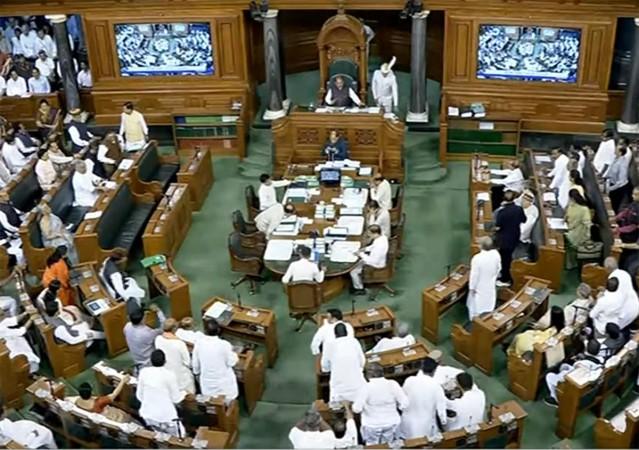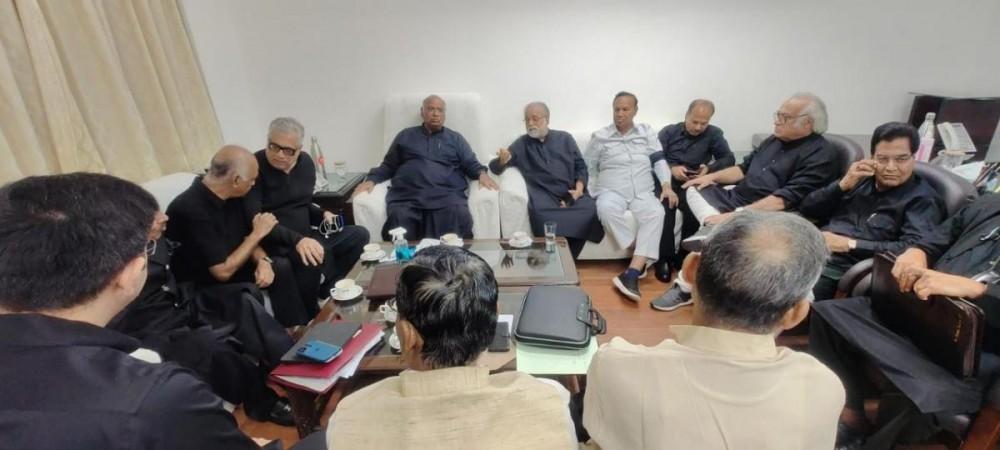The government would seek passage of as many as four bills in Lok Sabha on Monday (August 7), including the controversial Digital Personal Data Protection Bill, 2023, whose introduction on August 3 had been vehemently opposed by the Opposition.
Besides, the government will also try and get the Anusandhan National Research Foundation Bill, 2023, Pharmacy (Amendment) Bill, 2023 and the Mediation Bill, 2023 passed in Lok Sabha on Monday.
In Rajya Sabha, the Delhi services bill will come up for discussion and passing. Opposition parties, including AAP have issued whip to its members to remain in the upper house in full strength, to oppose the bill.
As many as 14 bills have been passed in Lok Sabha since the commencement of the monsoon session on July 20.

Except for the Delhi services bill, which was passed after exhaustive discussion, all the remaining 13 bills have been passed in Lok Sabha amid opposition's protests over the Manipur issue, without much discussion.
Considering the way in which the monsoon session has progressed, marred by the Opposition's vehement protests over the Manipur situation in both houses of Parliament, while seeking Prime Minister Narendra Modi's presence in Parliament and his response on the matter, there is a likelihood that the above-mentioned four bills may also be passed on Monday without much discussion.
Digital Bill
On August 3, the Opposition had strongly opposed the introduction of the controversial Digital Personal Data Protection Bill, 2023 in Lok Sabha, asking it to be sent for review under a Parliamentary panel.
The moment Minister for IT and Electronics Ashwini Vaishnaw sought permission to introduce the bill in Lok Sabha, the Congress-led opposition had opposed its introduction.

AIMIM MP Asaduddin Owaisi, while opposing the bill, had sought a division on it. Leader of the Congress in the Lower House, Adhir Ranjan Chowdhury had said that the government wants to trample upon the people's right to information through the bill.
Congress member Gaurav Gogoi had said that the legislation impinges on the right to privacy, while another Congress MP Manish Tewari said it was not a final bill and needs to be sent to a Parliamentary panel for review. Shashi Tharoor also said that the bill be sent to a Parliamentary panel.
RSP MP NK Premachandran also opposed the introduction of the legislation, raising concerns about potential dilutions of the Right to Information Act, 2005, and the autonomy of states.
The bill claims to strengthen the digital rights of Indians but has also attracted concerns about allowing the Central government and agencies unfettered access to citizens' data.

Despite opposition's protests, the bill was introduced in Lok Sabha through voice vote. Vaishnaw while introducing the bill, had allayed opposition's fears that it was a money bill, designed to bypass the Rajya Sabha's scrutiny.
He insisted that it was general bill and the issues raised by opposition MPs were unrelated to the government's legislative competence. He had assured the house that the government was ready to engage in a detailed discussion on the bill, including addressing allegations made by opposition MPs.
(With inputs from IANS)

















